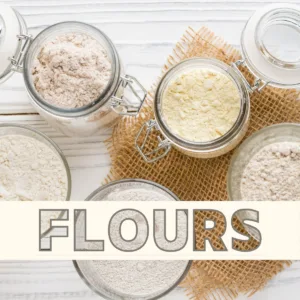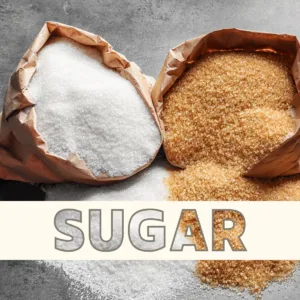When it comes to baking, there are a few key ingredients that play a crucial role in creating those delicious treats we all love. Baking Soda vs Baking Powder – Baking soda and baking powder are two ingredients that often get confused with each other, but they have distinct differences and purposes in the baking world. In this article, we will learn the dissimilarities between baking soda and baking powder and how they can be used in various recipes.
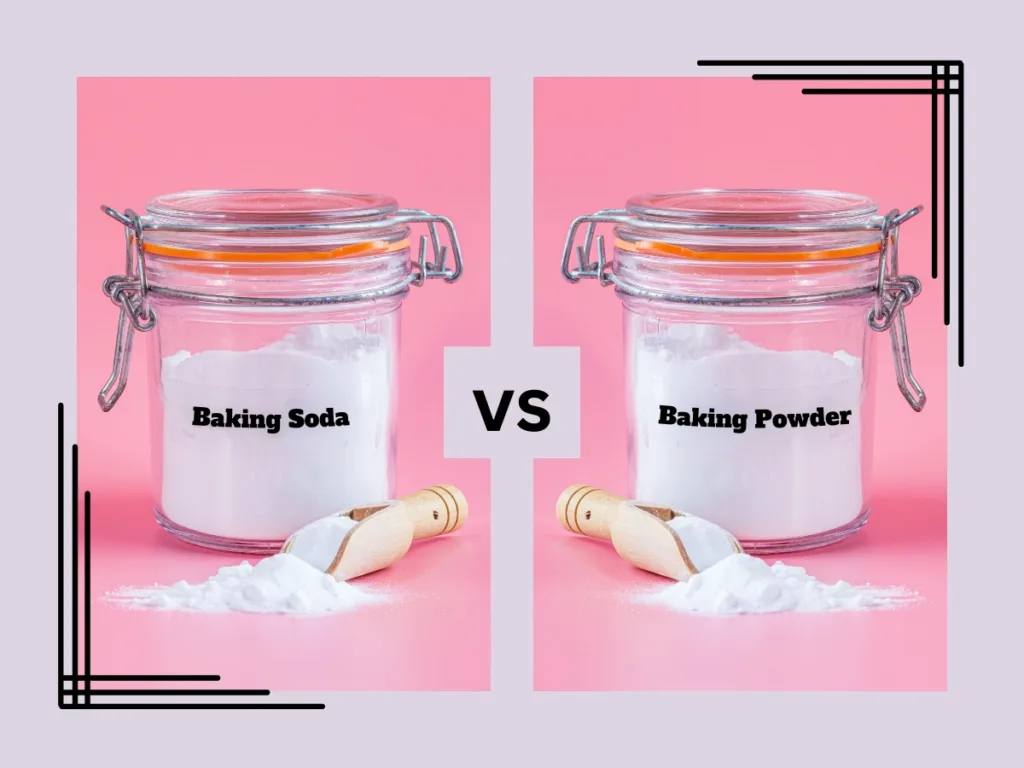
Baking Soda
Baking soda, also known as sodium bicarbonate, is a leavening agent that helps baked goods rise. It is a white crystalline powder with a slightly alkaline taste. Baking soda reacts with acidic ingredients in a recipe, such as vinegar, lemon juice, or buttermilk, to create carbon dioxide gas. This gas forms bubbles, which expand during baking, causing the dough or batter to rise.
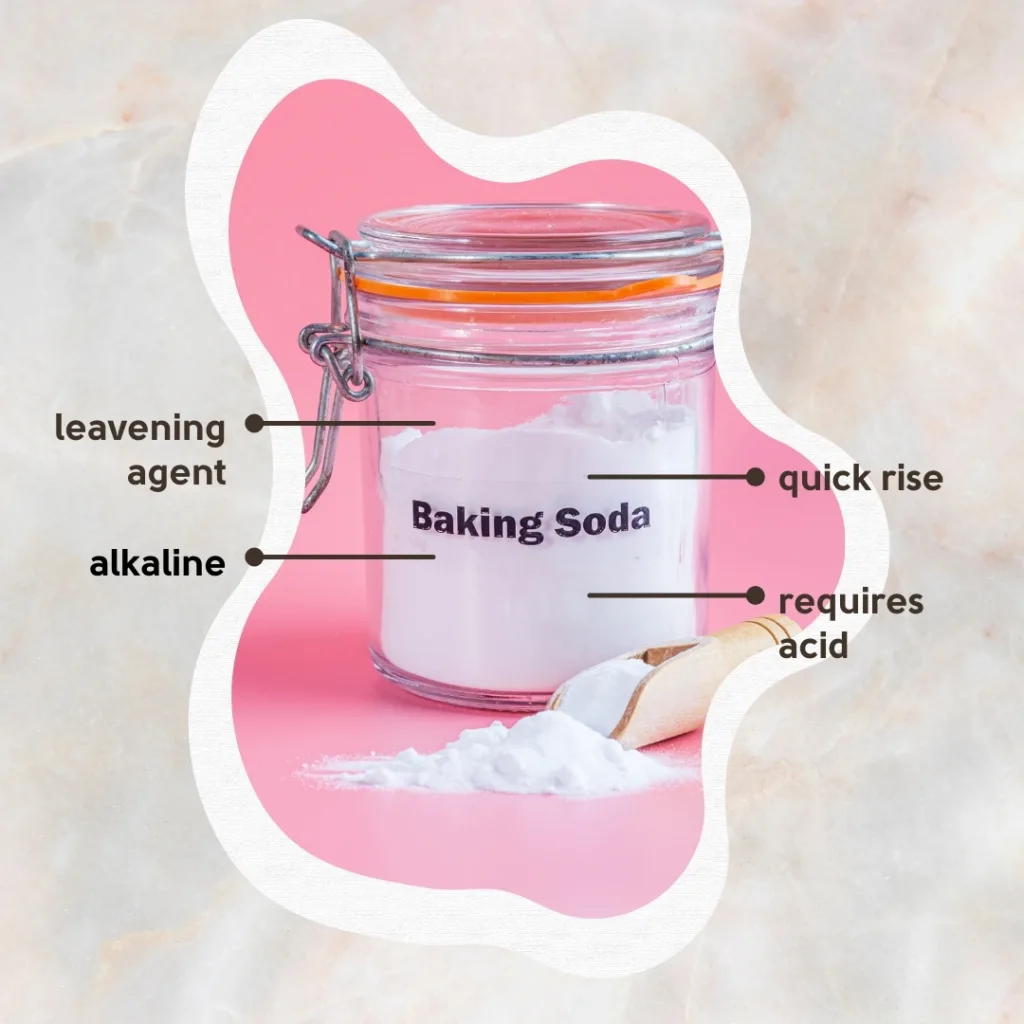
One important thing to note about baking soda is that it requires an acidic ingredient for activation. Without an acid, baking soda will not produce the desired leavening effect. Therefore, recipes that call for baking soda often include ingredients like yogurt, cocoa powder, or cream of tartar to provide the necessary acidity.
Baking soda is ideal for recipes that require a quick rise, such as pancakes, muffins, and certain types of cookies. However, it’s important to use the right amount of baking soda, as too much can leave a bitter taste in the final product.
Baking Powder
Baking powder is another leavening agent commonly used in baking. Unlike baking soda, baking powder is a complete leavening agent that contains both an alkaline component (usually baking soda) and an acidic component (such as cream of tartar). This combination allows baking powder to react with liquid and heat, producing carbon dioxide gas and causing the dough or batter to rise.
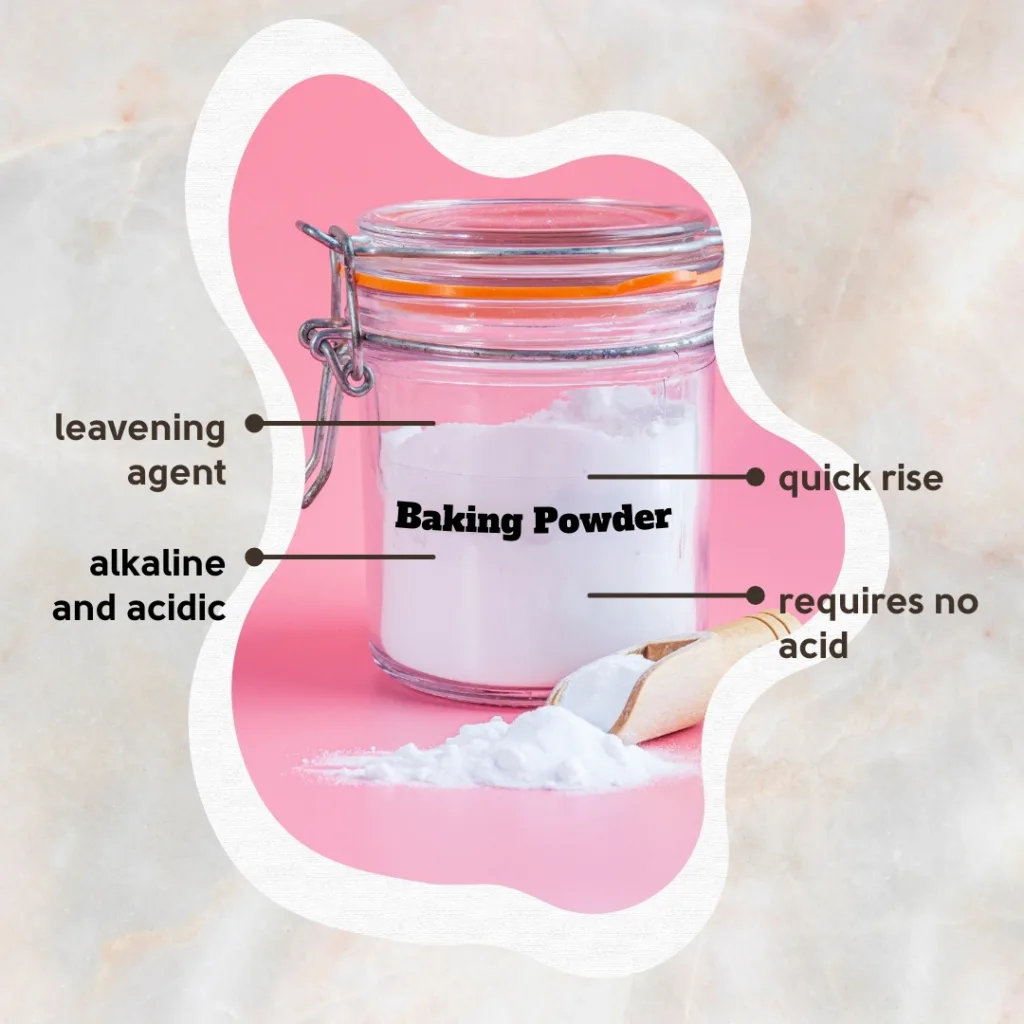
One advantage of using baking powder is that it already contains the necessary acid, so it can be used in recipes that don’t include acidic ingredients. This makes it a convenient option for recipes like cakes, cupcakes, and other baked goods that don’t have acidic components.
It’s important to note that baking powder comes in two varieties: single-acting and double-acting. Single-acting baking powder reacts immediately when it comes into contact with liquid, so it should be baked right away. On the other hand, double-acting baking powder reacts in two stages: once when it gets wet and again when it’s exposed to heat. This makes it more versatile and suitable for recipes that require longer baking times.
When to Use Each
The choice between baking soda and baking powder depends on the specific recipe and desired outcome. As a general rule, if a recipe includes acidic ingredients, such as buttermilk or vinegar, baking soda is the preferred option. On the other hand, if a recipe doesn’t contain acidic ingredients, baking powder is the way to go.
It’s worth mentioning that some recipes may call for both baking soda and baking powder. This combination ensures a proper rise and balance of flavors. However, it’s important to follow the recipe instructions carefully to avoid using too much leavening agent, which can lead to a bitter taste or an overly fluffy texture.
Baking Soda vs Baking Powder
Baking soda and baking powder may seem similar, but they have distinct characteristics and uses in baking. Baking soda requires an acidic ingredient to activate, while baking powder is a complete leavening agent. Understanding the differences between these two ingredients will help you achieve the desired results in your baking endeavors.
The next time you’re in the kitchen, make sure to choose the right leavening agent based on the recipe you’re preparing.
Hope you enjoyed this article and learned something new. It is always my intention to leave you with a little bit of knowledge after reading my posts.
Looking for a new seasonal recipe blog to follow? Explore new recipes on our food blog at Thyme of Season.

